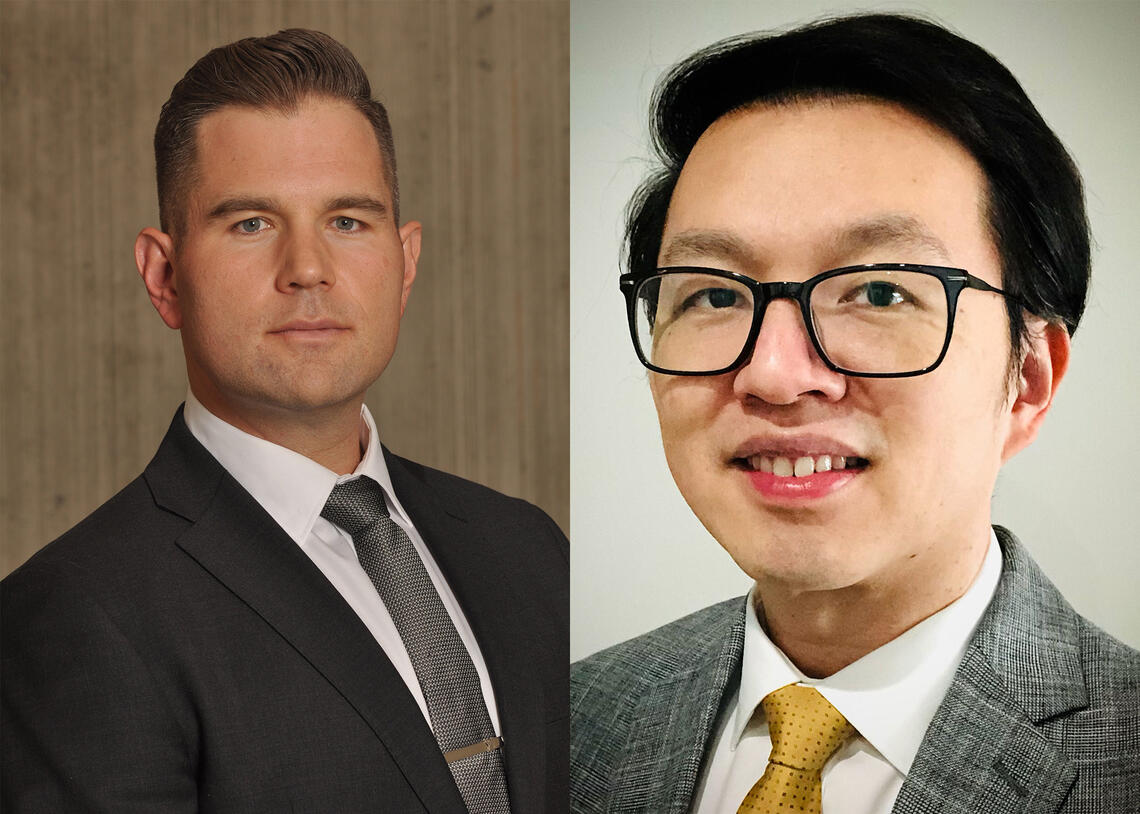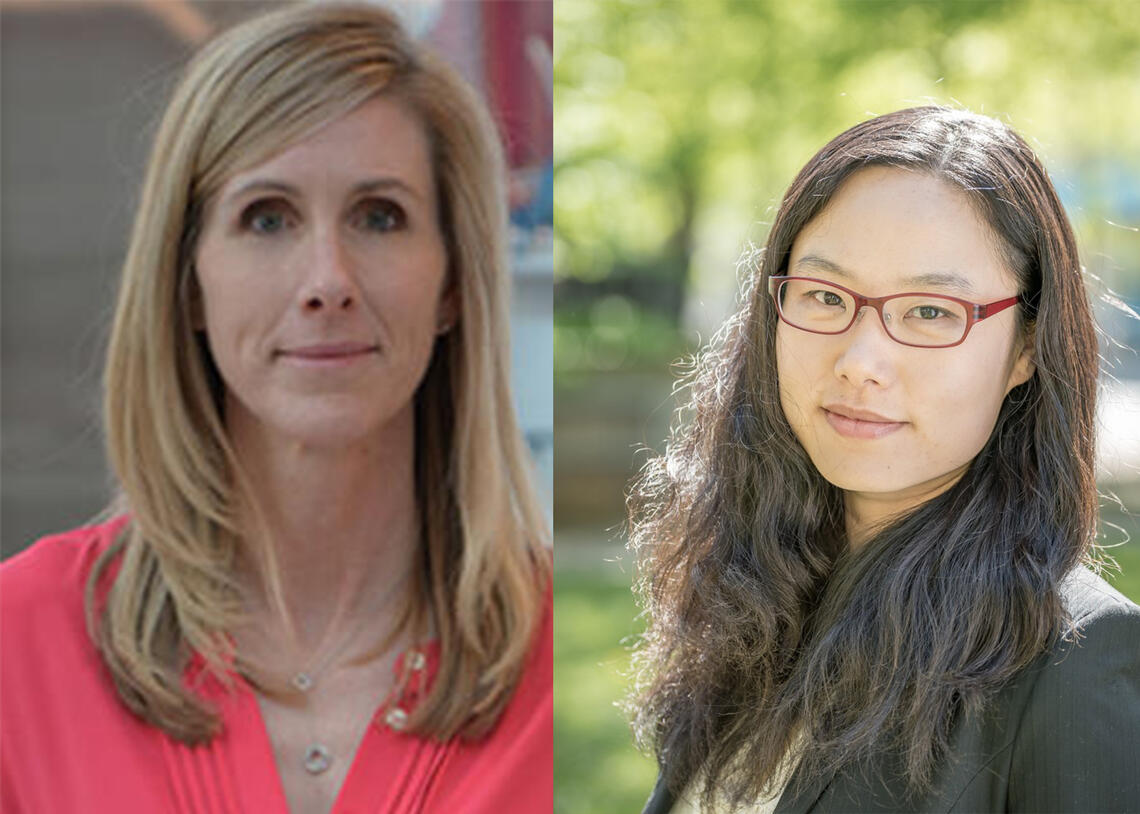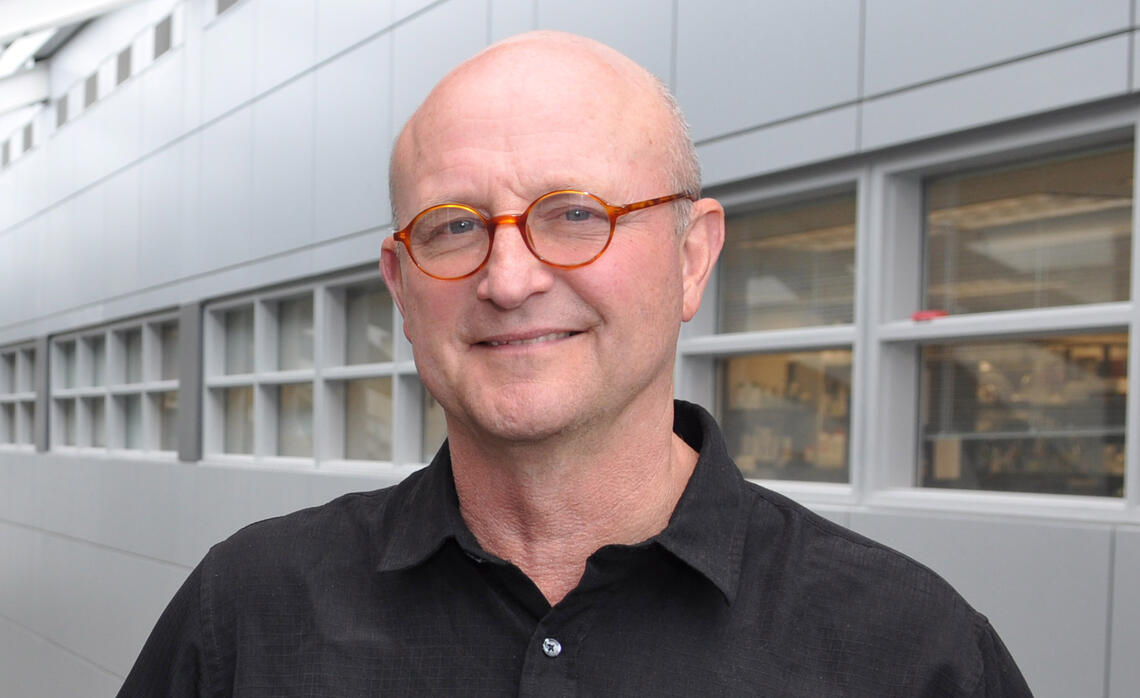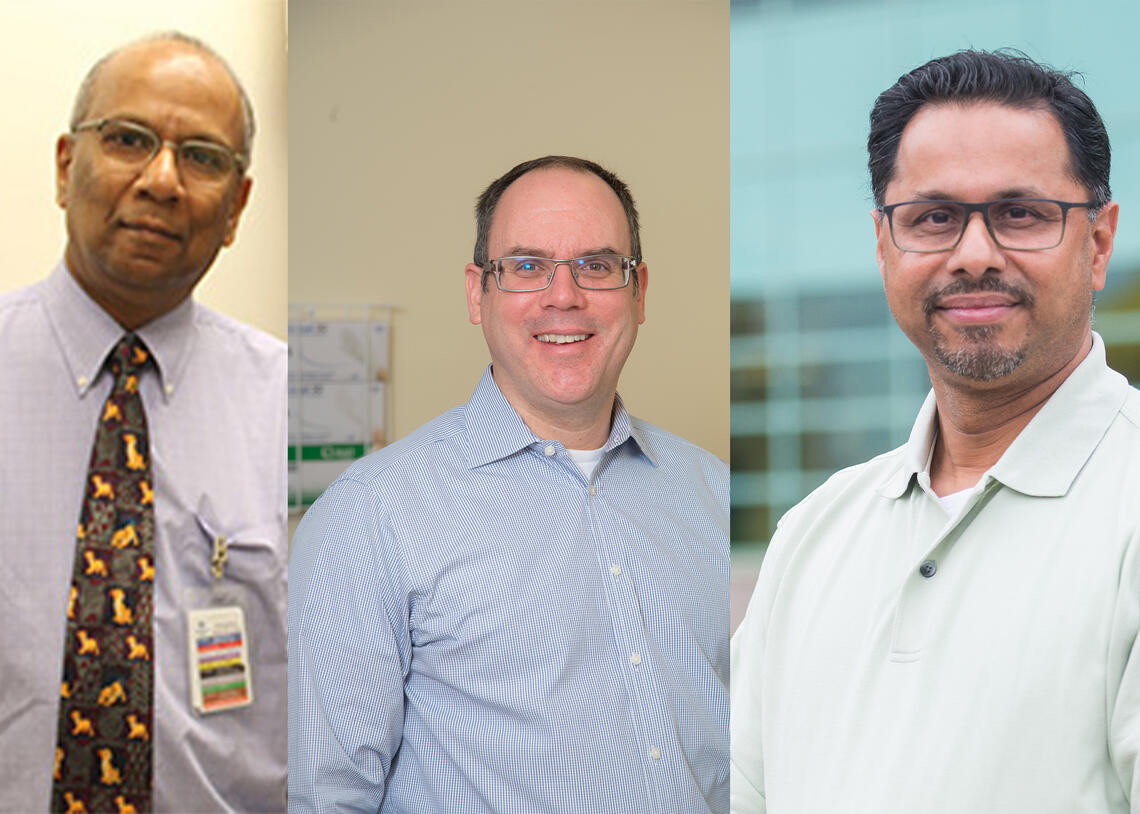Congratulations to our investigators who were awarded CIHR Grants in Fall 2022
From improving cancer outcomes to providing data driven solutions for the best possible life after cancer, scroll down to read more about these new projects underway and the impact they will have.


Co- Investigators: Dr. Devon Boyne, Dr. Colleen Cuthbert, Dr. Christie Farrer, Dr. Sharlene Gill, Dr. Robert Hilsden, Dr. Tamer Jarada, Dr. Safiya Karim, Dr. Joon Lee, Dr. Dylan O’Sullivan, Dr. Khara Sauro, Dr. Patricia Tang.
Project Background:
Improving Patient Outcomes among Early-Age-At-Onset Colorectal Cancer Patients Using Real-World Data
Early onset colorectal cancer among adults under the age of 50 is on the rise in Canada. This increase has considerable impacts not only on the health of Canadians and their families, but also the healthcare system. On average, these early onset cases are diagnosed at later stages, and with different, often negative tumor characteristics which ultimately contribute to limited options and poor clinical outcomes. Despite this increasing incidence, early onset colorectal cancer cases still represent a minority of colorectal cancer diagnosis in Western countries and consequently they are under-represented in randomized clinical trials of cancer therapies. Because of this lack of representation, currently, the best approaches to treat early onset colorectal cancer patients remains unclear with minimal data to support treatment decisions in the clinic. Clinicians and patients are often faced with a challenging conundrum, to either treat the disease very aggressively, or to attempt to minimize the consequences of treatment-related effects unique to younger patients. The goal of this research is to represent and ultimately understand patient outcomes for early onset colorectal cancer patients in Canada. Using readily available population-based data, this project aims to consider how early and late-stage patients are currently being treated and to then determine the effectiveness of different treatment strategies for all patients, with hopes of developing tools to help better guide treatment options based on individual patients.
Duration: 3 years.

Dr. Colleen Cuthbert
Assistant Professor, Faculty of Nursing
Dr. Lin Yang
Adjunct Assistant Professor, Oncology, Community Health Sciences
Co-Investigators: Dr. Darren Brenner, Dr. Winson Cheung, Dr. Nicole Culos-Reed, Ms. Christie Farrer, Dr. Safiya Karim, Dr. Dylan O’Sullivan, Dr. Patricia Tang.
Project Background:
Over the years there has been an increase in research pointing to the beneficial link between physical activity and cancer outcomes. This positive link also extends to life after cancer. In this research, Dr. Cuthbert and Yang focus on patient, caregiver, and clinician identified strategies to manage long-term changes to bowel function among colorectal cancer patients. Despite colorectal cancer being one of the most commonly diagnosed forms of cancers in Canada, there are few interventions to manage bowel dysfunction and other long-term effects from treatments. Previous research has demonstrated the benefits of exercise, diaphragmatic breathing, and meditation to improve bowel function and overall quality of life. Defined as mindful exercise, Tai Chi incorporates movement, diaphragmatic breathing, and meditation. Supporting patients to manage their symptoms using Tai Chi is a promising strategy to improve both bowel function and a patient’s unique survivorship experience. The aims of the study are to determine if a virtual Tai Chi program for colorectal cancer survivors with long-term bowel dysfunction can improve bowel function while also improving physical fitness and patient reported outcomes like diminishing anxiety, depression, and increasing quality of life including sleep and optimism. The team plans to use knowledge generated from this trial to help improve patient experiences, health outcomes, and provide rationale for a larger pan-Canadian study.
Duration: 1 year

Dr. Christine Friedenreich
Adjunct Professor, Fellow Royal Society of Canada, Oncology, Community Health Sciences
Dr. Lin Yang
Adjunct Assistant Professor Oncology, Community Health Sciences
Co-Investigators: Dr. Jamie Benham, Dr. Darren Brenner, Dr. Kerry Courneya, , Dr. Nicole Culos-Reed, Dr. Karen Kopciuk, Dr. Margaret McNeely, Dr. Jeffrey Vallance.
Project Background:
Alberta Moving Beyond Breast Cancer (AMBER) Cohort Study: Understanding how Physical Activity, Sedentary Behaviour, and Health-related Fitness are Related to Breast Cancer Survival
With improvements in early detection and treatment, we are fortunate to be living in a time where breast cancer patients are living longer than ever. Unfortunately, as with many cancer treatments, undergoing breast cancer treatment often has physical and psychological side effects. Research shows that breast cancer survivors have a heightened risk for not only cancer recurrence, but also heart disease, weight gain, bone loss, anxiety and depression. In general, physical activity has been shown to improve the physical health of breast cancer survivors, help manage some short-term side effects of treatment, and reduce the risk of recurrence. Because of their unique circumstances, many breast cancer survivors have high levels of sedentary behaviour. To date, little is known about how sedentary behaviour or fitness may affect breast cancer outcomes. At present, physical activity has not been widely adopted into regular cancer care and no individualized guidelines have been created for breast cancer patients or survivors.
In 2012, championed by the work of both Dr. Friedenreich and Dr. Yang, the Alberta Moving Beyond Breast Cancer cohort study was initiated to address this knowledge gap. To date, the study has recruited 1528 newly diagnosed breast cancer patients and examined their physical health, activity levels over the course of more than a decade at the 1,3 and 5 year mark. The final analyses will examine how these lifestyle factors are associated with survival outcomes. This study will lead to improvements in both clinical guidelines and public health recommendations on physical activity for breast cancer survivors.
Duration: 1 year.

Project Background:
Stem Cell Function in Biological Aging.
As a population we are living longer than ever before. As our population ages we are faced with new challenges and our researchers are looking at ways to meet this need. Dr. Riabowol leads the Aging and Immortalization Laboratory within the Robson DNA Sciences Centre at the Charbonneau Cancer Institute. Dr. Riabowol and his team are focused on understanding the links between cancer and aging. This study will seek to understand the link stem cells have in maintaining health and normal tissue and organ function.
The human body is composed of trillions upon trillions of cells, most or all of which undergo a natural process of cell aging during our lifetimes. Many cell types such as skin or blood cells continue to divide throughout our lifetimes and when they have divided a certain number of times, they reach a point where they cannot divide any further and become detrimental to the health of the body. This is where we can see increased cancer occurrence and aging. There are however a small proportion of our cells called stem cells that largely avoid this cell aging process and contribute fresh cells to the body to maintain tissue and organ function as we grow older. It is thought that replenishing the population of stem cells can slow the process of aging and rejuvenate particular tissues and organs, to maintain health as we age. Dr. Riabowol and his team predict that some tissues that show rapid cell growth like those in the skin would show the greatest effect and provide insight into how it might be possible to extend healthy function of different tissues and organs into old age.
Duration: 1 year.

Dr. Aaron Goodarzi
Associate Professor Biochemistry & Molecular Biology & Oncology Director, Robson DNA Science Centre
Co-Investigators: Dr. Cheryl Peters, Adjunct Assistant Professor, Community Health Services.
Project Background:
1 in 5 Canadians diagnosed with lung cancers have never smoked. The most common lung cancer trigger in never-smokers is inhalation of radioactive radon gas. Dr. Goodarzi and his research team have studied the relationship between radon gas exposure and region, residential property metrics, as well as human behaviour. The amount of life spent at home can correlate with radon exposure which can increase lung cancer risk. Over the past century, Canadian construction practices, focused on sustainability, have produced urban residential environments that capture, contain, and concentrate radon to unnatural and unsafe levels. Canadians are among the most radon-exposed people globally. This research will examine and put into context a detailed understanding of radon exposure as a function of building features and people, with the most recently understood diversity of properties and demographics of the Canadian population. The goal of this project is to place the most up to date residential radon gas exposure data available within the context of the most recently understood Canadian housing, health and population information. By combining, contextualizing and considering this data is needed to inform physical, social and policy interventions required to reduce lung cancer risk attributable to radon inhalation within the urban built environment. When completed this work will have critical impacts, including generate reliable measures of residential radon exposure risk in Canada that are sensitive to regional differences, developping a clear understanding of the scale and scope of the health consequences of radon exposure, to inform the need for action. By doing this we will advance health outcomes by developing actionable, well-informed knowledge of radon exposure and lung cancer risk, and use this to address one of the most prevalent built environment-based health threats to our future cities.
Duration: 1 year

Highlighting Collaborative efforts
Dr. Aru Narendran, Dr. Greg Guilcher and Dr. Victor Lewis
three Charbonneau Members who were principal investigators on this collaborative, North American effort
Primary Investigators:
Dr. Nicola Wright, Dr. Geoff Cuvelier, Dr. Eyal Grunebaum, Dr. Greg Guilcher, Dr. Donald Kohn, Dr. Victor Lewis, Dr. Ashish Marwaha, Dr. Luis Murguia-Favela, Dr. Aru Narendran, Dr. Nicole Prokopishyn, Dr. Romero Garcia, Dr. Suresh Zulema.
Project Background:
Gene therapies are a novel therapeutic response to rare genetic disorders. Currently, Canadian patients with inherited immune disorders eligible for gene therapies must travel to other countries for treatment, where cost can be over $2 million per patient. Research communities in Canada have identified the significant need to develop and make these therapies accessible in Canada. Through a pilot clinical trial, this project will pave the way for a collaborative framework to advance these therapies in Canada. The study will focus on patients with a CD3delta gene severe combined immunodeficiency (CD3delta SCID). This group is ideal for a Canadian pilot, as the disease has a much higher incidence in our population. Patients with CD3delta SCID have a severe defect in their immune system that presents in infancy with life threatening infections. Overall survival among these patients is only 61-67% and most survivors suffer significant complications. In contrast, gene therapy for other types of SCID have been shown to be safer, with 100% survival and reduced complications. In a collaborative effort with Dr. Donald Kohn, an expert in gene therapies at the University of California, Los Angeles, Canadian researchers are working to develop an applicable gene therapy for CD3delta SCID. Preliminary work has shown that the newer gene therapy technique, base editing, is showing optimal results compared to other gene editing strategies. The team has identified that base editing is much more efficient and precise at correcting the specific CD3delta defect. Testing on bone marrow cells from an Alberta patient with CD3delta SCID demonstrated correction of the mutation and growth of T cells. To advance this research further, the team is now focused on a multicenter Canadian clinical trial to test gene editing in patients with CD3delta SCID. This trial represents a scientific landmark as one of the first gene therapy trials using a base editing strategy and will develop a Canadian pipeline for precision medicine for rare disorders.
Duration: 3 years.


